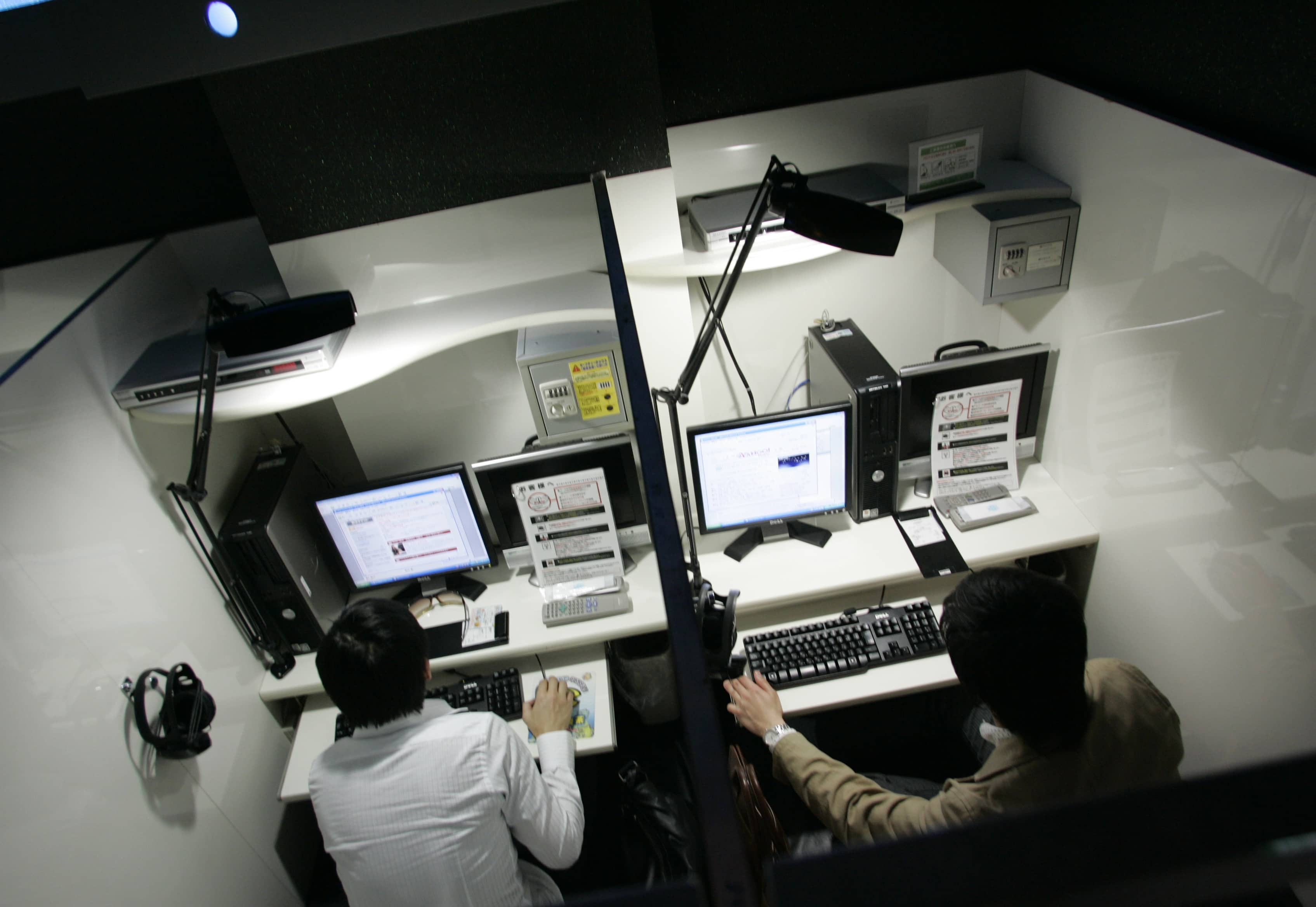Article 21 of the Constitution of Japan guarantees freedom of assembly, association, speech, press and all other forms of expression.
This statement was originally published on article19.org on 6 October 2015.
CONSTITUTIONAL FRAMEWORK
Article 21 of the Constitution of Japan guarantees freedom of assembly, association, speech, press and all other forms of expression. While the Constitution does not expressly protect the right to receive and impart information, the Supreme Court has decided that the right to information is protected by Article 21 of the Constitution. The Constitution further prohibits censorship and provides that secrecy of communications shall not be violated.
RIGHT TO INFORMATION ACT
The initiatives that led to the adoption of the Japanese right to information law were put forward by the Japan Consumers Federation, public interest lawyers and the Japan Civil Liberties Union (JCLU), driven by concern over the lack of transparency surrounding the safety of the drug thalidomide and other cases where information to prove government culpability was required. Members of the JCLU and other public interest groups joined together in March 1980 to form the “Citizens Movement for an Information Disclosure Law.”
After a 20-year effort, the Act on Access to Information Held by Administrative Organs (RTI Act) was approved by the legislature, the National Diet in May 1999 and went into effect in April 2001. An expert panel conducted an extensive review of the law in 2004, finding numerous problems with the law but made no recommendations on changes to the legislation. Other efforts to amend the law have been unsuccessful.
However, in 2013 Japan adopted a controversial Secrecy Act that has serious implications for exercising the right to know.
Provisions of the RTI legislation
PRINCIPLES
The purpose of the RTI Act, declared in Article 1, is to ensure greater accountability of the Government and to contribute to the “promotion of a fair and democratic administration.”
SCOPE
Every person, corporation or group can request access to information. The Act applies to the Cabinet, the organs within the Cabinet or established under the jurisdiction of the Cabinet, and certain other agencies. The legislative and judicial branches are not mentioned by the Act. While the Act does not mention private bodies with public functions or those receiving public funding, a separate statute applies to public companies (special public corporations) which was adopted on 2 November 2001. An “Administrative document” is defined as a document prepared or obtained by an administrative body for the purpose of organisational use by its employees. The Act excludes from its scope documents published for the purpose of selling to a broader public (such as official gazettes, newspapers, books) and historical, cultural or academic materials managed as archives.
Proactive disclosure
The Act does not include any requirement to proactively publish public information. However, a guideline for online provision of administrative information was issued in 2004 by the inter-ministerial CIO committee. This guideline was replaced by the guideline for promoting provision and usage administrative information by websites and others, issued in March 2015. These include what kind of information the ministries should provide voluntarily. An OECD study in 2010 showed that the Japanese government routinely publishes budget documents and audit reports. The Government E-Procurement System (GEPS) was launched in March 2014.
DISCLOSURE UPON REQUEST
The Act provides for a simple procedure that enables anyone to seek information. The Act does not prescribe in what form the request may be submitted. The requesters are only obliged to state their name and address (in case of a corporation also a name of the representative) and provide as much detail about documents sought as necessary for the authority to identify relevant documents. Requesters are not required to state reasons for requesting information.
The requester may indicate the preferred form of accessing the documents, although there are no clear rules on whether the authority needs to comply with such a preference. If the authority considers that the demanded inspection of the documents would entail risks for preserving the documents, it may decide to provide a copy of the original for inspection.
The authority is obliged to provide help to the requestor to specify the requested documents easily and accurately and take other steps “that take into account the convenience” of the requester. The body must also help the requester to revise the request if this is deficient. If the body holds the requested documents, but they were prepared by another body or there are reasonable grounds for another body to make the decision for the request, the Act provides for the possibility for the authority to transfer the request to another body. There is no obligation to transfer the request to another body or notify the requester that the requested document might be held by another body.
The deadline for the decision on the request is 30 days which may be prolonged to 60 days provided the individual is notified without delay. Article 11 of the Act allows for extended delays in response when there is a “considerably large amount” of documents and the body notifies the requestor in writing.
Requesters must pay a fee at the time of the submission of the request and separately if documents are disclosed. The Act limits the amount of fee to the actual expenses and it also provides for fee waivers in cases of economic hardship or other special reasons.
EXEMPTIONS
There are six broad categories of exemptions all of which are subject to a harm test. The exemptions protect information about a specific individual (unless the information is made public by law or custom, is necessary to protect a life, or relates to a public official in his public duties); national security or international relations or negotiations; the interests of corporations if information affects their legitimate rights or was given voluntarily in confidence; law enforcement activities; internal deliberations or internal decision making; inspections, supervisions, concluding of contracts, etc. With all these exemptions the body must assess whether the risk would occur for the protected interests.
Exempted information can be disclosed by the head of the agency “when it is deemed that there is a particular public-interest need.” The head of the agency can also refuse to admit the existence of the information if answering the request will reveal the information.
The Act contains a severability clause, although access may be denied if meaningful information is only contained in the excluded parts of the documents.
APPEALS
A requester can submit an appeal with the authority that decided on the request. If the authority does not change its decision, it must refer the appeal to the Information Disclosure Review and Personal Information Protection Review Board. The Review Board is an independent body established within the Cabinet Office. It a collegiate body made of 15 experts selected and appointed by the Prime Minister from “among people of superior judgment” and approved by the parliament. The Review Board has the power to inspect the documents concerned. Its decisions are not binding and it is not possible to appeal them. The appeal is, however, also possible with the district courts (“specific jurisdiction courts”) and there is no requirement to first appeal to the Review Board. Starting in 2016, the board will be affiliated with the Ministry of Internal Affairs and Communications.
Sanctions
The Act does not provide for sanctions against civil servants that impede the individuals’ right to information. However, a penalty is prescribed for members of the Review Board who disclose secret information that they came to know during or after the time served on the Board.
Publication / Reporting mechanisms / Promotional measures
The Act mandates the Minister of Internal Affairs and Communications to request reports on the implementation of the law from public bodies. The Minister shall collect, arrange, and publish a summary of these reports on an annual basis. The government is tasked with some modest promotional measures: it should promote disclosure and educate people on exercising the right to information.
IMPLEMENTATION OF THE RTI LEGISLATION
The number of requests has not substantially increased in recent years and more information is now being withheld. In 2013, there were a total of 110,662 requests to administrative agencies and public corporations, up from 93,717 in 2004. In 2013, nearly 42,000 of the requests resulted in full disclosure, down from 60,000 in 2004. There were 56,000 partial releases, compared with 21,000 in 2004. The 3,000 cases that resulted in non-disclosure is roughly the same for 2013 as it was in 2004. There were over 1,100 administrative appeals in 2013, down from 1,500, and 750 recommendations from the Review Board in 2013, up slightly from 720 in 2004. Between 60 and nearly 90 per cent of the decisions are upheld each year by the Review Board and only between two and 12 per cent of the bodies’ decisions are reversed. Less than 10 per cent of cases were appealed to the courts.
The main criticisms by civil society groups of the Act as implemented are high fees, prolonged deadlines for decisions, delays in referring appeals to the Review Board, missing documents, poor archiving, and excessively broad non-disclosures. The time consuming process has been somewhat improved after introducing an obligation on bodies to report to the Ministry of Internal Affairs and Communication, publish individual cases where the deadline for decision has been prolonged over 90 days, and delays in referring appeals to the board over 90 days. The public interest test is infrequently used. Among other factors that contribute to the low levels of implementation, commentators cited a shortage of resources, especially human resources, to uphold the information disclosure legislation.
There have been reported pressures against the information requesters; the Defence Agency compiled a list of people who had submitted requests and had conducted a background investigation of those people and distributed it to the officers of the agency in 2002. More recently, the Ministry was found to be withholding requested documents until it was revealed. Another bad practice that has been identified concerned the destruction of documents that could otherwise fall within the RTI regime and mismanagement of public records.
Another problem relates to the lack of mechanisms to ensure compliance with the Act and with the Information Disclosure Review Board recommendations. The decisions of the Review Board are not binding, although they are generally respected. The Review Board has made a number of important decisions, such as recommending the disclosure of the minutes of meetings between Emperor Hirohito and US General Douglas MacArthur, and a list of 500 hospitals that used a blood-clotting agent infected with Hepatitis C. Following the latter decision, the Health Minister promised to release the full list of 7,000 hospitals that used the drug.
One of the most troubling developments came with the adoption of the so-called secrecy law, the Act on the Protection of Specially Designated Secrets. More details are set out below.
Related legislation
Local laws
All 47 prefectures have adopted disclosure laws applying to nearly 1,700 local governments and 99 percent of villages. The first jurisdictions to adopt laws were Kanayama-cho in Yamagata prefecture in 1982 and Kanagawa and Saitama Prefectures in 1983.
Official Secrets Act
The Act does not regulate the relationship with secrecy laws. In December 2014, a new and widely criticised secrecy law, the Act on the Protection of Specially Designated Secrets came into effect. The Act specifies procedures and circumstances on designating official documents as secret in the interest of Japan’s national security, which means the safety of the nation and its citizens from any invasion, the nation’s existence and so forth. The main criticisms against the act is that there is no credible third party oversight of the secrecy designation and declassification systems, excessively prolonged classification, no public interest override, no prohibitions on classifying documents related to illegal activities and malpractice, and no provision demanding that the public authority explains why a particular document should be designated as a special secret. The Act has led to unprecedented public protests. Since it was released as an outline of a draft bill, over 90,000 opinions were submitted through the public comment procedure with nearly 70,000 being critical. Civil society organisations, some mass media and many ordinary citizens proactively organised a campaign against the bill.
382 kinds of information were designated as a secret by the end of 2014. It has been estimated that 460,000 documents would fall under the “special secrets” definition and thus closed from the public. 189,193 documents were marked as a designated secret by the end of 2014. The law has been widely described as violating international standards on freedom of expression and information.
WHISTLEBLOWING LAW
Japan has a comprehensive Whistleblower Protection Law which came into force in 2006. Employees in the private sector, as well as the public sector, local governments, and public corporations are protected against dismissal or any disadvantageous treatment on the basis of whistleblowing. The Law protects those who expose misconduct from unfair treatment, such as dismissal, demotion or salary cuts, but it does not sanction the companies for breaching this obligation.
The Law defines “public interest disclosure” as information pertaining to criminal conduct or statutory violations relating to the protection of consumer interests, the environment, fair competition and generally the “life, body and property of the general public”. However, the Act on the Protection of Specially Designated Secrets prescribes penalties for public officials who leak state secrets and there is no public interest defence exemption.
ENVIRONMENTAL PROTECTION LAWS
A 1999 law required the creation of a Pollutant Release and Transfer Register. A law was approved in 2004 which requires government ministries, local governments and specified businesses to publish annual reports on the environmental consequences of their activities. Pursuant to the Environmental Impact Assessment Law assessments shall be made available for consultation and subject to public discussion.
INTERNATIONAL FRAMEWORK
Japan has signed and ratified the ICCPR, but has only signed and not ratified the UNCAC.
Japan is not participating to the Open Government Partnership, but is eligible to join. The country is also a member of the ADB/OECD Anti-Corruption Initiative for Asia-Pacific (it endorsed the Action Plan in 2001) and OECD Busan Partnership for Effective Development Co-operation. Japan is a supporting country of the Extractive Industries Transparency Initiative (EITI).



